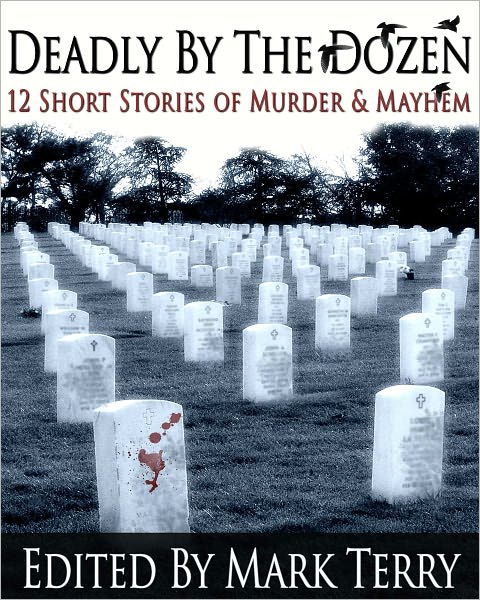Monday, April 11: Spirit of the Law
OUR AMERICAN GODFATHER
by Janice Law
Edgar Allan Poe helped father not one, but two, types of mystery story. The line featuring puzzles and a super rational detective comes via works like “The Murders in the Rue Morgue” and “The Purloined Letter” with the redoubtable C. Auguste Dupin. Dupin, like the later Sherlock Holmes, comes equipped with a friend who narrates the stories and asks questions so that the great man can elucidate the case. We also have Monsieur G _, the Prefect of the Parisian Police. Condescending and clueless, the Prefect formed a template for Holmes’ Inspector Lestrade as well as for countless bumbling officials.
The literary descendents of the Rue Morgue and of Dupin and his associates are legion. All are characterized by intricate plots and ingenious crimes. The detective, almost invariably male, is a coolly rational figure with an encyclopedic knowledge of whatever seems to be needed, whether blood types or imported cigarette papers or the habits of obscure mammals. In the case of the most successful of all, Sherlock Holmes, extraordinary ingenuity and intellect were given just enough in the way of humor, eccentricity and human warmth – usually via Dr. Watson– to make the character beloved as well as admired.
For inspiring much of this, we would already owe Poe a big debt. But our American ancestor was clearly a highly complex character. The obverse of the hyper-rational Monsieur Dupin are all the obsessives and hysterics who populate the other side of his fiction, stories like “The Black Cat,” “The Telltale Heart,” and “The Fall of the House of Usher.” These are people whose rationality has gone the way of all things and who have embraced folly and madness.
Few of us are as versatile as Poe, who was, whatever his personal issues, a genius. Most of us come down on one side or another of the mystery divide: rational solutions and a certain personal chill, or errors leading to crime and lives spiraling out of control. One’s choice depends on skill and temperament. The ingenious lean, I suspect, to the clever plots; those like me, who depend more heavily on atmosphere and character, see more to love in stories like “The Cask of the Amontillado,” to my mind a perfect thing of its type, the sort of story a writer could die happy having written.
Sure there are other contenders, including Conan Doyle and Ruth Rendell, but “The Cask” has everything. I’ve taught it to ninth graders and to college juniors and seniors with equal success, because it has all the ingredients readers love. It’s short – a big point with students and not irrelevant for older readers, either. It starts without delay, setting the plot in motion with the very first sentence, and with the same paragraph introduces the narrator as adequately as is needed for the story.
And then, the setting. All right, it’s gothic: Venice at carnival time, dusk, a chill outside, and worse in the vaults under Montresor’s palace, and yet there is not a line that is too much – and Poe was prone to pile on the cobwebs and literary shivers. The increasing damp and darkness as the story progresses makes it a claustrophobic’s nightmare, but subtly, for nothing is allowed to slow the drunken Fortunato’s progress toward his end.
The dialogue is supremely efficient. A word or two from each man is sufficient to move the narration forward, as Montresor alternately cautions his erstwhile friend about venturing further and raises the promise of the rare amontillado. Which of us would have been as restrained?
The ending is similarly apt. The horror of Fortunato’s entombment is emphasized not only by the careful description of Montresor’s work with blocks and mortar, but the details: The ringing of the bells on Fortunato’s jester’s cap, the man’s desperate conviction that this is an elaborate jest, even the narrator’s admission that his heart grew sick when Fortunato fell silent – and his quick explanation that it was merely “on account of the dampness of the catacombs”.
Most writers would have ended there, but Poe goes one step further and reveals that the narrator is remembering this event from half a century before, setting the tale securely back in time and space and giving it some of the same resonance as the old border ballads.
Asked about early influences, I usually mention Dorothy Sayers, Eric Ambler, and Raymond Chandler, one for smart women, one for suspense, and one for atmosphere. I think I’ve unjustly neglected to credit Poe. “The Cask of the Amontillado” was surely the first top class mystery I ever read, being a staple of junior and senior high school English classes. Beyond that, it cuts the pattern for a certain kind of story, distinguished by brevity and by the quality of its dialogue, character, and atmosphere.
“The Cask of the Amontillado” is one of a handful of stories that once read are never forgotten, to my mind the highest accolade. But for this very reason, Poe is often associated with what might be called the ‘young adult’ mind, as teachers have understandably seized on him as a sure fire classroom hit.
I’m one of the guilty, so this is to say a belated “thank you” to one of the ancestors of us all.





























